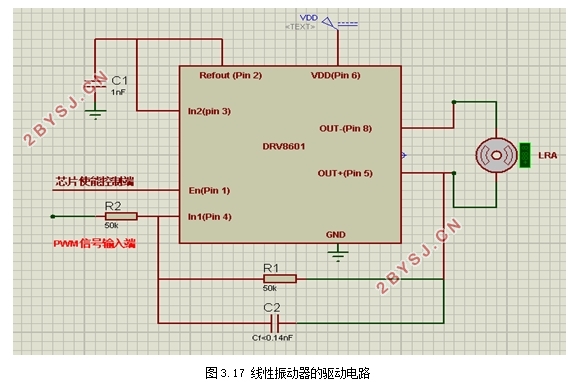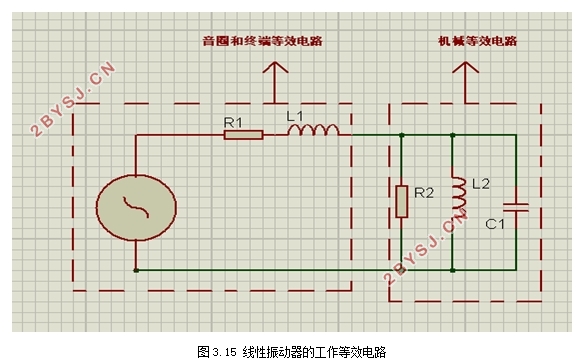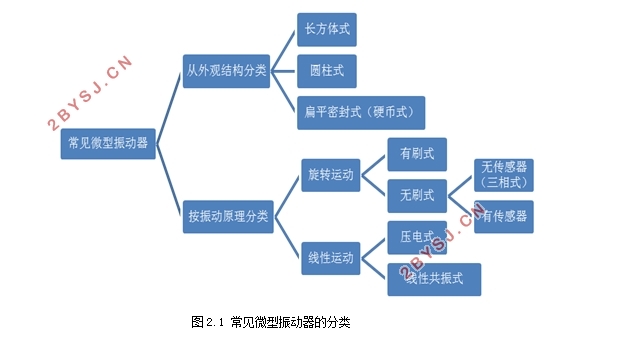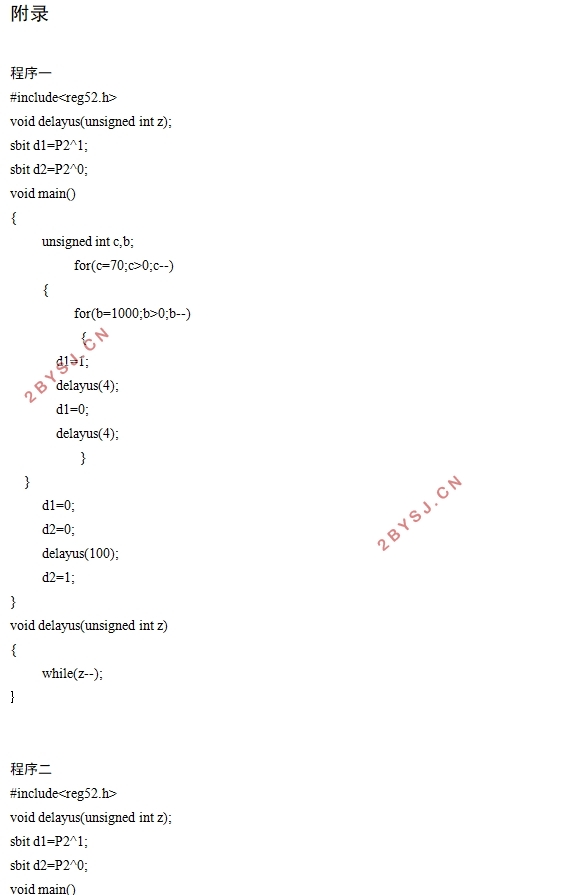手机振动器的控制设计
无需注册登录,支付后按照提示操作即可获取该资料.
手机振动器的控制设计(论文12000字)
摘要: 现如今,几乎每种电子设备都有能力产生振动,触觉反馈技术正在迅速地发展。手机产业是一个巨大的市场,因为振动功能是其必不可少的模块。在本课题中,我们列出了一些手机厂商将会面对的一些常见问题并且提出了一些解决它们的最佳电气设计。在第二章中,我们介绍了偏心转子振动器和线性共振振动器的基本结构和工作原理,然后在第三章中,我们设计了驱动电路,分析了使用PWM信号的注意点,同时利用52单片机输出PWM控制信号,通过改变PWM信号的占空比来控制振动器的工作电压和输出振幅。在第四章中,我们讨论了几种应用较广振动器安装方法和引线接口连接方案,在最后的结论中我们总结了驱动电路和PWM控制信号的可行性,同时列出了本次课题中一些需要进一步研究和改善的不足之处,希望大家能通过本次课题的研究对振动器的工作原理和控制方法有一个清晰的了解。
关键字: 偏心转子振动器 线性共振振动器 脉冲宽带调制
The Control Design and Realization of Phone Vibrators
Abstract: Now almost every device has the ability to produce vibration alerts and the field of haptic feedback is rapidly moving forward. The mobile phone industry is a huge market, in which vibration are an established component. In this study we outline some of the common problems cell phone manufacturers face and the electrical best practices to overcome them. In the second chapter, we introduce the basic structure and working principle of both ERM and LRA, and then in the third chapter, we design driving circuit and create PWM control signal for both ERM and LRA. And we can control the working voltage of vibrator and output amplitude by changing the duty circuit of PWM signal. In the fourth chapter, we discuss several installation methods for vibrators and introduce several widely used ways of securing vibration motor leads and wires. In the final conclusion, we list some deficiencies in this study, which need for further research and improvement. We hope through our study, you will have a clear understanding for the working principle and control of vibrators.
Key words: Eccentric Rotating Mass vibration motor Linear Resonant Actuators
Pulse Width Modulation




目 录
第1章 绪论………………………………………………………………1
1.1 课题研究的目的及意义…………………………………………………………………1
1.2 国内外的研究现状及发展………………………………………………………………1
1.3 课题的主要内容及目标…………………………………………………………………2
第2章 手机振动器的基本构造和工作原理……………………………3
2.1 常见手机振动器的分类…………………………………………………………………3
2.2 偏心转子振动器…………………………………………………………………………3
2.3 线性共振振动器…………………………………………………………………………4
2.4 常见引线接口方案的选取………………………………………………………………5
2.5 常见固定方式选取………………………………………………………………………7
第3章 手机振动器的驱动与控制电路设计……………………………9
3.1 手机电池及内部电磁干扰问题的解决方案……………………………………………9
3.2 模拟驱动偏心转子振动器工作……………………………………………………… 10
3.2.1 驱动电路的设计…………………………………………………………………10
3.2.2 控制信号的产生…………………………………………………………………11
3.2.3 工作状态的模拟…………………………………………………………………16
3.3 模拟驱动线性共振振动器工作…………………………………………………………19
3.3.1 线性振动器的工作等效电路分析………………………………………………19
3.3.2 模拟线性振动器震波工作状态…………………………………………………20
第4章 结论…………………………………………………………… 23
致谢………………………………………………………………………24
参考文献…………………………………………………………………25
附录………………………………………………………………………26
